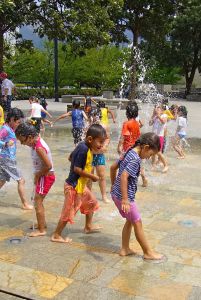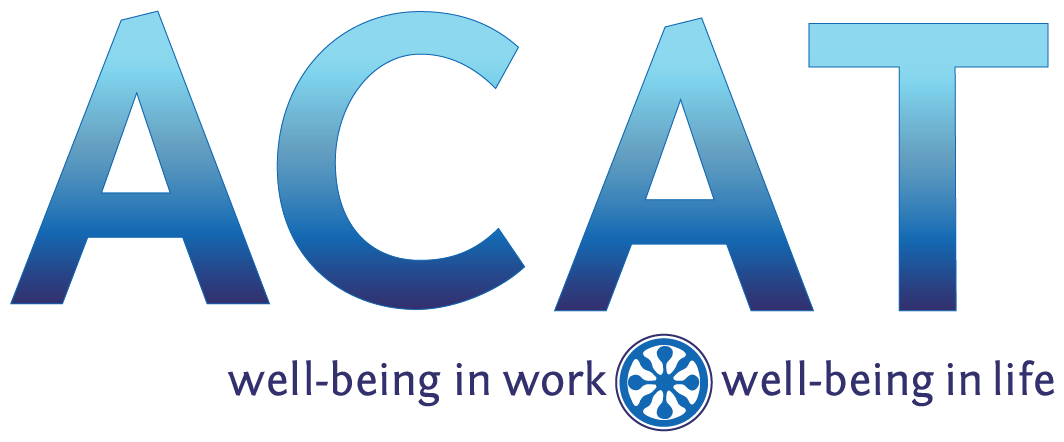 by Anastasia Pridlides
I attended the "games teachers play" free member event on April 28th ready for fun. I had been looking forward to this event from the moment it went on the calendar, not only because I really enjoy playing, but also because I love working with groups. I'm always looking for new things to put in my group teaching toolbox. We attendees had a fantastic time as Brooke Lieb, Luke Mess and Mark Josephsburg for shared their teaching games with us. Here are some of the things that I took away from the workshop.
by Anastasia Pridlides
I attended the "games teachers play" free member event on April 28th ready for fun. I had been looking forward to this event from the moment it went on the calendar, not only because I really enjoy playing, but also because I love working with groups. I'm always looking for new things to put in my group teaching toolbox. We attendees had a fantastic time as Brooke Lieb, Luke Mess and Mark Josephsburg for shared their teaching games with us. Here are some of the things that I took away from the workshop.
What games can accomplish in a group setting
Ice Breaking
Asking a group of strangers to explore their sometimes personal habits together can be kind of intense. One of the best group class experiences I had as a student of the Technique was in a class where all of the participants really gelled. The level of comfort that we developed with one another created a supportive and relaxed learning environment and that enhanced my learning exponentially. Ice Breaker games are a great way to energize your group, to encourage them to tune in to one another and to build a group rapport.
Loosening up
We have all had those moments where we have gotten very serious about our selves and our process as we are learning. I know that in me an overly serious or inwardly focused mindset usually leads to end gaining and when that happens lightening up is exactly what I need. Sometimes a laugh or a smile is just the thing to encourage an "up" in the system.
Skill application
Games can be a really fun way to explore applying the Alexander Technique in an activity. It can help get your students out of their sitting and standing routine and help to bridge the gap between their lessons and their application of the Technique to their everyday life.
Alternative way of exploring abstract concepts
Concepts like inhibition, or faulty kinesthesia can be challenging ideas when they are new. Games that explore or incorporate these concepts can reinforce your students learning process by giving them opportunities to engage them experientially in a variety of different ways.
Incorporating games into your own teaching practice
The first question to ask oneself when planning games for your classes is "what do you find fun and engaging?" If you as the teacher pick something that you find stimulating, your students will pick up on the tone that you are setting for the activity. For instance, I love playing with balls and anything that involves lots of movement. I have a variety of go-to games that are either variations on catch or that encourage my students to move through space in new ways.
Next, decide what it is that you wish the purpose of your game to be in the context of your class. The purpose of an ice breaker game is to build a group dynamic and get your students more comfortable with one another. For that purpose, a game where everyone is standing in a circle and paying attention to the group as a whole, rather than one that breaks people into teams or pairs, might be a better choice. I like games that are forms of catch, whether you are using an actual ball or sending words or energy around the circle. Any name game where the participants get to say the names of others in the group can also help your group class get to know one another.
If however, you are looking for a game that explores a concept, the concept itself is your starting point. Do you want to explore inhibition? Then create a playful activity where taking a moment to a moment to pause or to not respond to a stimulus in an integral part of the game. What is it like to choose not to catch the ball, or not to run when you are tagged? Is faulty kinesthesia the concept you are interested in? How can you demonstrate that what we think we are doing isn't always what we are actually doing in a way that encourages your students to laugh at the discrepancy and be excited to find other places that don't match up? Can you ask them to close their eyes and move a certain way and then open them to see where they actually end up?
I've always thought of games as primarily being a group teaching tool, but these same concepts can be adapted for private lessons as well. I hope this gives you something to think about the next time that you are planning your classes. Do you have a favorite game that you like to teach in your classes, or a favorite game that you like play as a student? Then join the conversation and post it in the comments! I would love to hear about your ideas and experiences.
We have one more free member event coming up this season. Join us at ACAT on May 19th for “The Teacher’s Process, the Student’s Process: The Delicate Interplay of a Lesson” with Brooke Lieb. This workshop is perfect for Teaching Members who would like to get a taste of what it's like to be a trainee again and for Associate Members who are interested in learning more about how one learns to teach this work.
[author] [author_image timthumb='on']http://www.acatnyc.org/main/wp-content/uploads/2014/05/Anastasia.jpg[/author_image] [author_info]ANASTASIA PRIDLIDES teaches Alexander Technique, Bellydance and Yoga in New York City. Studying the Alexander Technique has been a deeply transformative and life changing process for her. Every day she wakes up excited to know that her job is share it with others. You can find her at movementhealingarts.com[/author_info] [/author]
